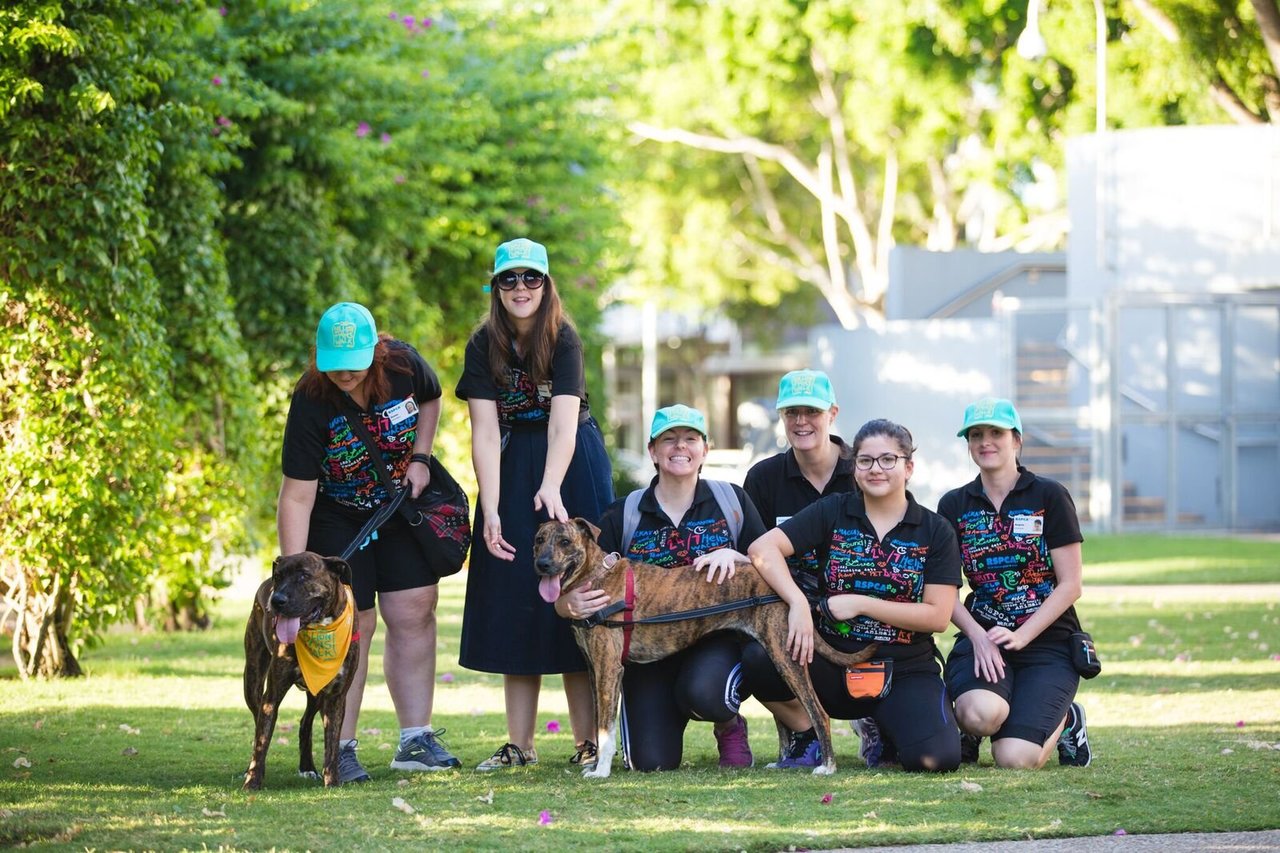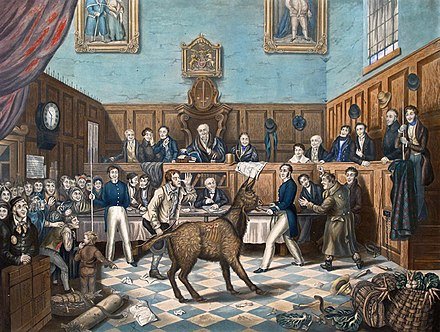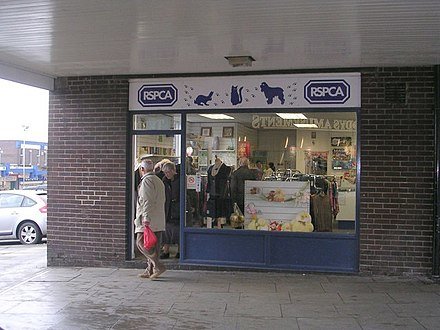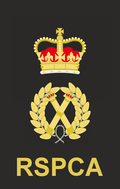British Heritage
Remember, Cherish, Learn.
beta
Royal Society for the Prevention of Cruelty to Animals
Contribution of the Royal Society for the Prevention of Cruelty to Animals (RSPCA) to British Heritage
The Royal Society for the Prevention of Cruelty to Animals (RSPCA) holds a significant place in British heritage as the oldest and largest animal welfare organization in the world. Founded in 1824 during a time of growing concern for the welfare of animals, the RSPCA emerged as a pioneering force in advocating for kindness and compassion towards animals. Its legacy extends beyond England and Wales, inspiring the establishment of similar animal welfare groups in various jurisdictions, including the Ulster Society for the Prevention of Cruelty to Animals, the Scottish Society for Prevention of Cruelty to Animals, and the American Society for the Prevention of Cruelty to Animals.
The roots of the RSPCA can be traced back to the intellectual climate of late 18th and early 19th-century Britain, where discussions about the treatment of animals were prevalent among social reformers, religious figures, and lawmakers. The harsh use and maltreatment of animals in various contexts, such as hauling carriages, scientific experiments, and cultural amusements like fox-hunting and bull-baiting, sparked debates about animal rights and welfare.
The foundation of the RSPCA was a result of the efforts of social reformers like Reverend Arthur Broome, who sought to create a voluntary organization dedicated to promoting kindness and preventing cruelty towards animals. On June 16, 1824, a meeting was held at Old Slaughter's Coffee House in London, chaired by Thomas Fowell Buxton MP, and attended by prominent figures such as William Wilberforce and Richard Martin, among others. The resolution to establish the society was passed, and it was initially named the Society for the Prevention of Cruelty to Animals. This marked the birth of the world's first animal welfare charity.
The RSPCA's growth was facilitated by significant support, including patronage from Princess Victoria, who later became Queen Victoria. In 1840, Queen Victoria granted the society its royal status, and it was henceforth known as the Royal Society for the Prevention of Cruelty to Animals. The queen's patronage further enhanced the RSPCA's reputation and influence in the country.
The society played an instrumental role in advocating for animal welfare legislation, leading to the passage of Martin's Act in 1822, which aimed to prevent cruelty to cattle. Subsequently, other laws and acts were enacted, reflecting the RSPCA's efforts in shaping animal protection policies.
Throughout its history, the RSPCA has consistently demonstrated its commitment to animal welfare through various initiatives and campaigns. It organized annual anti-cruelty sermons and later introduced "Animal Sunday" church services, promoting kindness and compassion towards animals. The RSPCA's inspectors, who are now an iconic symbol of the organization, were established to monitor and prevent the abuse of animals, ensuring the enforcement of welfare laws.
Over the years, the RSPCA's work expanded, encompassing wildlife rehabilitation, animal hospitals, and animal rehoming centers across England and Wales. The society also engaged in international relations to foster global cooperation on the issue of animal cruelty and welfare.
The RSPCA's contributions to British heritage extend to the promotion of animal welfare legislation, the establishment of ethical principles regarding animals, and the instigation of debates on animal rights and welfare. Its enduring presence and influence over nearly two centuries have solidified its position as a cornerstone of British heritage, upholding values of compassion, kindness, and the protection of the voiceless creatures that share our world.
The roots of the RSPCA can be traced back to the intellectual climate of late 18th and early 19th-century Britain, where discussions about the treatment of animals were prevalent among social reformers, religious figures, and lawmakers. The harsh use and maltreatment of animals in various contexts, such as hauling carriages, scientific experiments, and cultural amusements like fox-hunting and bull-baiting, sparked debates about animal rights and welfare.
The foundation of the RSPCA was a result of the efforts of social reformers like Reverend Arthur Broome, who sought to create a voluntary organization dedicated to promoting kindness and preventing cruelty towards animals. On June 16, 1824, a meeting was held at Old Slaughter's Coffee House in London, chaired by Thomas Fowell Buxton MP, and attended by prominent figures such as William Wilberforce and Richard Martin, among others. The resolution to establish the society was passed, and it was initially named the Society for the Prevention of Cruelty to Animals. This marked the birth of the world's first animal welfare charity.
The RSPCA's growth was facilitated by significant support, including patronage from Princess Victoria, who later became Queen Victoria. In 1840, Queen Victoria granted the society its royal status, and it was henceforth known as the Royal Society for the Prevention of Cruelty to Animals. The queen's patronage further enhanced the RSPCA's reputation and influence in the country.
The society played an instrumental role in advocating for animal welfare legislation, leading to the passage of Martin's Act in 1822, which aimed to prevent cruelty to cattle. Subsequently, other laws and acts were enacted, reflecting the RSPCA's efforts in shaping animal protection policies.
Throughout its history, the RSPCA has consistently demonstrated its commitment to animal welfare through various initiatives and campaigns. It organized annual anti-cruelty sermons and later introduced "Animal Sunday" church services, promoting kindness and compassion towards animals. The RSPCA's inspectors, who are now an iconic symbol of the organization, were established to monitor and prevent the abuse of animals, ensuring the enforcement of welfare laws.
Over the years, the RSPCA's work expanded, encompassing wildlife rehabilitation, animal hospitals, and animal rehoming centers across England and Wales. The society also engaged in international relations to foster global cooperation on the issue of animal cruelty and welfare.
The RSPCA's contributions to British heritage extend to the promotion of animal welfare legislation, the establishment of ethical principles regarding animals, and the instigation of debates on animal rights and welfare. Its enduring presence and influence over nearly two centuries have solidified its position as a cornerstone of British heritage, upholding values of compassion, kindness, and the protection of the voiceless creatures that share our world.
- Royal Society for the Prevention of Cruelty to Animalsen.wikipedia.org










